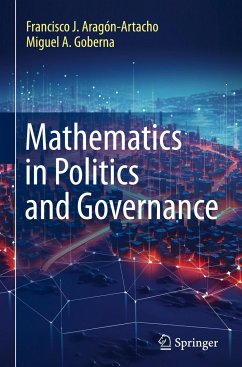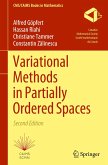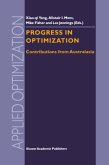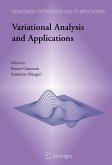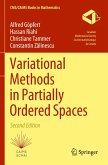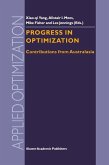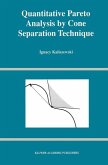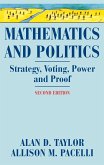This book presents the mathematical tools that politicians use to make rational decisions about health, education, culture, economy, finance, transportation, and national defense for their citizens. The selection of topics addressed is based on the experiences of four veteran politicians who have doctorates or master's degrees in mathematics. The exposition also considers the mathematical tools used by politicians to capture votes or optimize their impact on the design of electoral districts, i.e., gerrymandering, without forgetting the mathematics applied to parliamentary activity and political science.
Aimed at a general educated readership, a basic knowledge of mathematics is the only requisite to understanding most of the book. Certain sections, denoted in the book with a star, contain more advanced material and require some knowledge of undergraduate math. A later chapter is dedicated to applications and techniques of machine learning and the final chapter discusses a variety of cases where political decisions have affected mathematical development. Readers gravitating towards this book are those who are curious about the history of mathematics, including optimizers and mathematicians who would like to learn more about the historical roots of their discipline. There will also be strong appeal to mathematically-oriented economists, political scientists, and people generally interested in mathematics.
Mathematics is - or it should be! - an important part of our culture. The impact of mathematics is sometimes silent, but a powerful one. The authors of this book did an incredible work in digging out areas of mathematical reasoning that pervades social and political life. Reading this book, we will all enrich our vision of mathematics' value for society.
(Nuno Crato, Professor of Applied Mathematics, University of Lisbon, former minister of Education and Science of Portugal 2011-2015)
This monograph shows in an impressive way that mathematics can be very helpful in making and evaluating political decisions and that it is indispensable in the progressive penetration of all areas of society with scientific methods. This also includes politics. Not everything in politics can be justified or related to mathematics, but politics should not be made in contradiction to mathematical truths. For me, this is a central message of this publication.
(Johanna Wanka, Professor of Applied Mathematics, Merseburg University of Applied Sciences, former Minister of Education and Research, Germany 2013-2018)
Aimed at a general educated readership, a basic knowledge of mathematics is the only requisite to understanding most of the book. Certain sections, denoted in the book with a star, contain more advanced material and require some knowledge of undergraduate math. A later chapter is dedicated to applications and techniques of machine learning and the final chapter discusses a variety of cases where political decisions have affected mathematical development. Readers gravitating towards this book are those who are curious about the history of mathematics, including optimizers and mathematicians who would like to learn more about the historical roots of their discipline. There will also be strong appeal to mathematically-oriented economists, political scientists, and people generally interested in mathematics.
Mathematics is - or it should be! - an important part of our culture. The impact of mathematics is sometimes silent, but a powerful one. The authors of this book did an incredible work in digging out areas of mathematical reasoning that pervades social and political life. Reading this book, we will all enrich our vision of mathematics' value for society.
(Nuno Crato, Professor of Applied Mathematics, University of Lisbon, former minister of Education and Science of Portugal 2011-2015)
This monograph shows in an impressive way that mathematics can be very helpful in making and evaluating political decisions and that it is indispensable in the progressive penetration of all areas of society with scientific methods. This also includes politics. Not everything in politics can be justified or related to mathematics, but politics should not be made in contradiction to mathematical truths. For me, this is a central message of this publication.
(Johanna Wanka, Professor of Applied Mathematics, Merseburg University of Applied Sciences, former Minister of Education and Research, Germany 2013-2018)
"This book ... provides a rare yet thought-provoking intersection of mathematics, operational research, and politics. Specifically, it demonstrates the importance of mathematics and operational research in politics in terms of offering effective and ethical solutions to address societal challenges. ... This book encourages its readers to use mathematical skills as a powerful tool for communication and political change on one hand, and sows the seeds for a more transparent and thoughtful democracy in their minds on the other." (Jinal Parikh and Gerhard-Wilhelm Weber, IFORS News, Vol. 19 (4), December, 2024)
"If I had to select just one mathematics book to take with me on a two-week sea cruise-on a ship with no library of mystery novels to distract me-and I wanted a text that would be challenging, informative, and intimately connected to the real world, this would be the one. ... Mathematics in Politics and Governance offers numerous, quite specific examples ... . the book is loaded with true-story politics, historical anecdotes ... ." (Paul J. Nahin, SIAM News, sinews.siam.org, July 5, 2024)
"If I had to select just one mathematics book to take with me on a two-week sea cruise-on a ship with no library of mystery novels to distract me-and I wanted a text that would be challenging, informative, and intimately connected to the real world, this would be the one. ... Mathematics in Politics and Governance offers numerous, quite specific examples ... . the book is loaded with true-story politics, historical anecdotes ... ." (Paul J. Nahin, SIAM News, sinews.siam.org, July 5, 2024)

